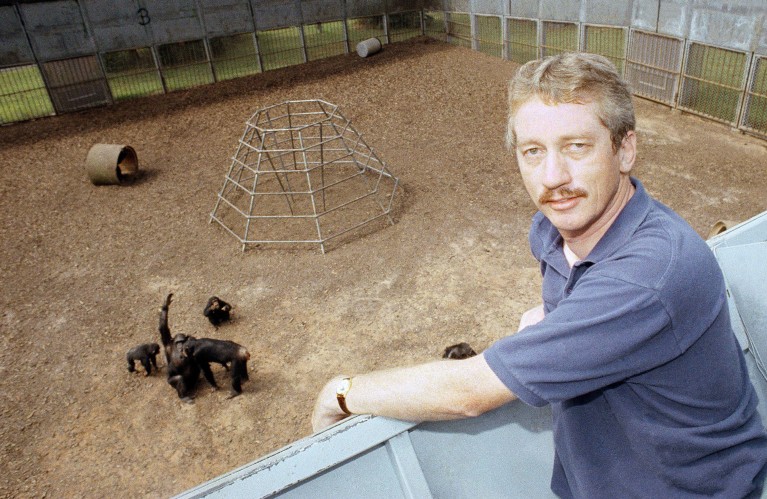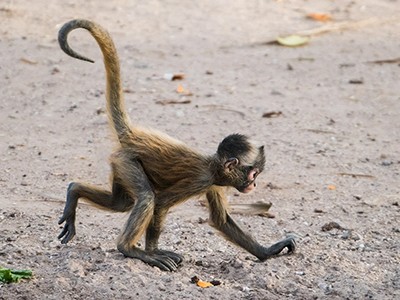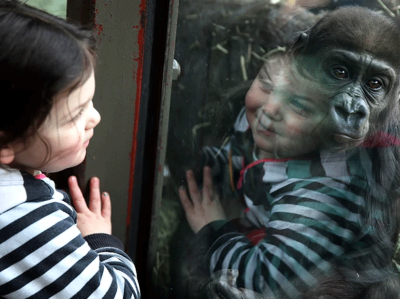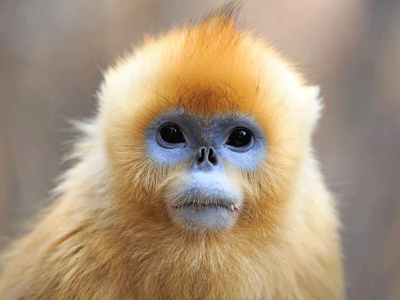[ad_1]

Credit score: Erik S. Lesser/AP/Alamy
Frans de Waal made an early however influential entrance onto the worldwide scientific stage along with his first e-book, Chimpanzee Politics (1982), which documented the intricate social manoeuvring of chimpanzees in Burgers’ Zoo in Arnhem, the Netherlands, throughout his PhD and postdoc years. de Waal confirmed that the chimpanzees typically acted in methods much like social methods devised by Renaissance diplomat Niccolò Machiavelli, as their alliances shifted of their pursuit of energy.
For the remainder of his profession, de Waal expertly toggled between publishing peer-reviewed analysis and a dozen different books that elegantly communicated discoveries concerning the behaviour and minds of animals to a rising lay readership. His and others’ analysis has progressively narrowed the percieved hole in cognitive capacity between people and non-human apes and different animals. de Waal has died aged 75.

How people misplaced their tails — and why the invention took 2.5 years to publish
All through the primary half of the 20th century, analysis on animal intelligence was epitomized by experiments during which a single animal in a cage was given a bodily drawback, comparable to choosing the odd one out amongst a number of objects — echoing human intelligence checks. de Waal’s analyses steered that probably the most complicated challenges to chimpanzees’ mind lay much less within the bodily area and extra of their complicated social lives. Right now, the character and scope of social intelligence, in each people and different animals, is a significant space of analysis.
de Waal’s later contributions contrasted along with his preliminary focus. Peacemaking Amongst Primates (1989) documented his discovery of reconciliatory behaviour, during which two people would make up after a battle, embracing and grooming one another. One other phenomenon that he noticed was comfort, during which a 3rd occasion approached the loser to embrace or groom them. de Waal interpreted such actions as delicate changes that finessed people’ complicated social lives, much like these seen in people.
Born in ’s-Hertogenbosch within the Netherlands, Frans de Waal skilled as a zoologist on the Radboud College Nijmegen and the College of Groningen earlier than endeavor a PhD at Utrecht College, supervised by Dutch biologist Jan van Hooff. Each have been dedicated to the ethological method of their Nobel-prize-winning countryman, Niko Tinbergen, who really helpful that any research of animals ought to start with cautious statement of their unfettered behaviour. In a revised 1989 version of Chimpanzee Politics, de Waal identified that the behavioural anecdotes in his writing didn’t signify the principle foundation of his scientific conclusions. Quite the opposite, his observations, quantitative knowledge, behavioural experiments and statistical analyses have been, crucially, constructed on the inspiration of naturalistic statement.

Consciousness: what it’s, the place it comes from — and whether or not machines can have it
After de Waal moved to the Wisconsin Nationwide Primate Analysis Middle in Madison in 1981, he prolonged his analysis on reconciliation to a number of thousand aggressive episodes recorded in teams of monkeys. These revealed that the chance of reconciliation various between species. To check the roles of intuition and studying on this behaviour, de Waal reared juveniles of two species collectively: stump-tail macaques (Macaca arctoides), which generally reconcile, and rhesus macaques (Macaca mulatta), which don’t. The conciliatory tendency of the latter tripled with publicity to the upper frequency of reconciliation among the many stump-tails.
de Waal additionally explored the method of studying from others: the inspiration of tradition. His contributions ranged from compelling information of chimpanzees imitating others to large-scale experiments seeding various types of software use in numerous chimpanzee teams. Outcomes demonstrated the cultural unfold of novel software use, producing native traditions and complementing the proof for putative chimpanzee cultures within the wild, the place demonstrating a causal function of social studying is harder. These research have been accomplished in de Waal’s area station colonies after he moved to Emory College in Atlanta, Georgia, in 1991. In The Ape and the Sushi Grasp (2001), de Waal synthesized different discoveries about primate tradition, paying homage to the pioneering work of Japanese primatologists and establishing enduring hyperlinks with them.

Greatest ever research of primate genomes has surprises for humanity
He returned to the theme of tradition in his final work, Totally different (2022), during which he tackled the possibly treacherous matters of intercourse and gender. Noting proof for primates culturally assimilating applicable behaviour for his or her intercourse, he argued that it is a manifestation of what we imply by gender — yet one more phenomenon that isn’t distinctive to people. Nor, as he confirmed, are homosexuality and gender transitions.
de Waal’s analysis portfolio prolonged to numerous species, notably elephants, capuchin monkeys and bonobos (Pan paniscus), tackling usually human ideas comparable to morality, equity and empathy. In Our Internal Ape (2005), he provided a nuanced evaluation of what people inherited from our frequent ancestor with the bonobo and the chimpanzee, our closest residing relations. As de Waal and others have proven, the 2 ape species show a exceptional variety of behavioural tendencies. The numerous puzzling contradictions of human behaviour, from altruism and kindness to violence and genocide, change into extra understandable, de Waal argued, when considered by the lens of the evolutionary ancestry that we will infer from all we have now found about our modern primate cousins.
Regardless of his many honours, de Waal wore his fame flippantly. He was modest and genial, with a aptitude for defusing tense tutorial debates with the wry humour that’s on show in his widespread TED talks. He vigorously supported the careers of a era of behavioural scientists. A becoming epitaph could be the title of certainly one of his books: Good Natured (1996). “One factor that I’ve seen typically in my profession is claims of human uniqueness that fall away and are by no means heard from once more,” he stated in 2014. “We at all times find yourself overestimating the complexity of what we do … I’ve introduced apes a bit of nearer to people however I’ve additionally introduced people down a bit.”
Competing Pursuits
The creator declares no competing pursuits.
[ad_2]
Supply hyperlink

